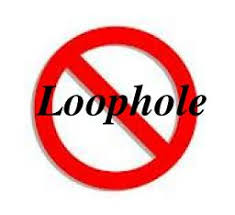
Oklahoma U.S. Sen. Jim Inhofe and two other Republican Senators have introduced a measure to close Clean Water Act loopholes used by some states against fossil fuel development.
He and Senators John Barrasso of Wyoming, Shelley Moore Capito of West Virginia and Steve Daines of Montana introduced the Water Quality Certification Improvement Act of 2018. It would amend the section 401 of the Clean Water Act and make key clarifications to existing law about the appropriate scope of review for a water quality certification. It would also put procedural guardrails and requirements on states as they process requests for certification to prevent future abuses.
“States hostile to fossil fuels have been taking advantage of loopholes in the Clean Water Act 401 certification process to block projects they simply don’t like, circumventing the needs and interests of other states and communities,” explained Sen. Inhofe. ” There is no better example of that than how the Northeast corridor is forced to import LNG from Russia because they lack the pipeline infrastructure to transport natural gas produced in America because liberal environmentalists are blocking much needed interstate projects.”
“The water quality certification process is being abused by a few states in order to delay important projects,” said Barrasso. “The state of Washington has hijacked this authority and blocked Wyoming coal from being exported overseas. The coal terminal project would create jobs and directly benefit families in Wyoming, Washington, and other Western states. The state of New York has taken similar steps to slow the construction of natural gas pipelines. This kind of obstruction is about politics, not water quality. This legislation returns the process to what it was originally designed for – protecting America’s water.”
“It’s important that our regulatory and permitting processes are clear and avoid creating costly and unnecessary burdens that can disrupt development and the completion of critical infrastructure projects,” Capito said. “This commonsense legislation would clarify current law to ensure a more responsible and predictable permitting process and help prevent unnecessary costs and delays. Through these reforms, we can help encourage and support both infrastructure development and economic growth.”
“Montana is rich in natural resources and has the capability of fueling not only our nation, but the world,” Daines said. “This bill will ensure our state’s abundant resources are no longer gridlocked by activist bureaucrats and will spur creation of high–paying Montana jobs, empower our tribes, and strengthen our national security.”
The Water Quality Certification Improvement Act of 2018 would:
· Clarify that the scope of a section 401 review is limited to water quality impacts only;
· Clarify that states, when evaluating water quality, can only consider discharges that would result from the federally permitted or licensed activity itself – not from other sources;
· Require states to publish clear requirements for water quality certification requests;
· Require states to make final decisions on whether to grant or deny a request in writing based only on water quality reasons; and
· Require states to inform a project applicant within 90 days whether the states have all of the materials needed to process a certification request.





